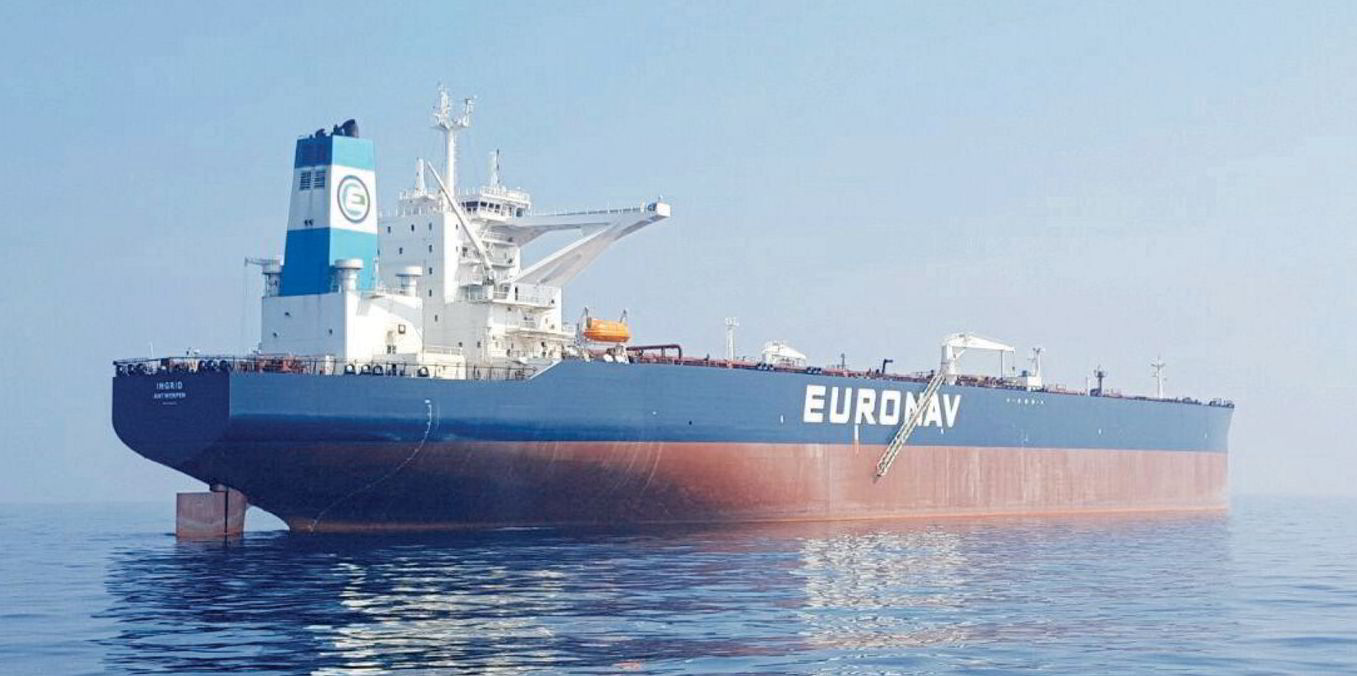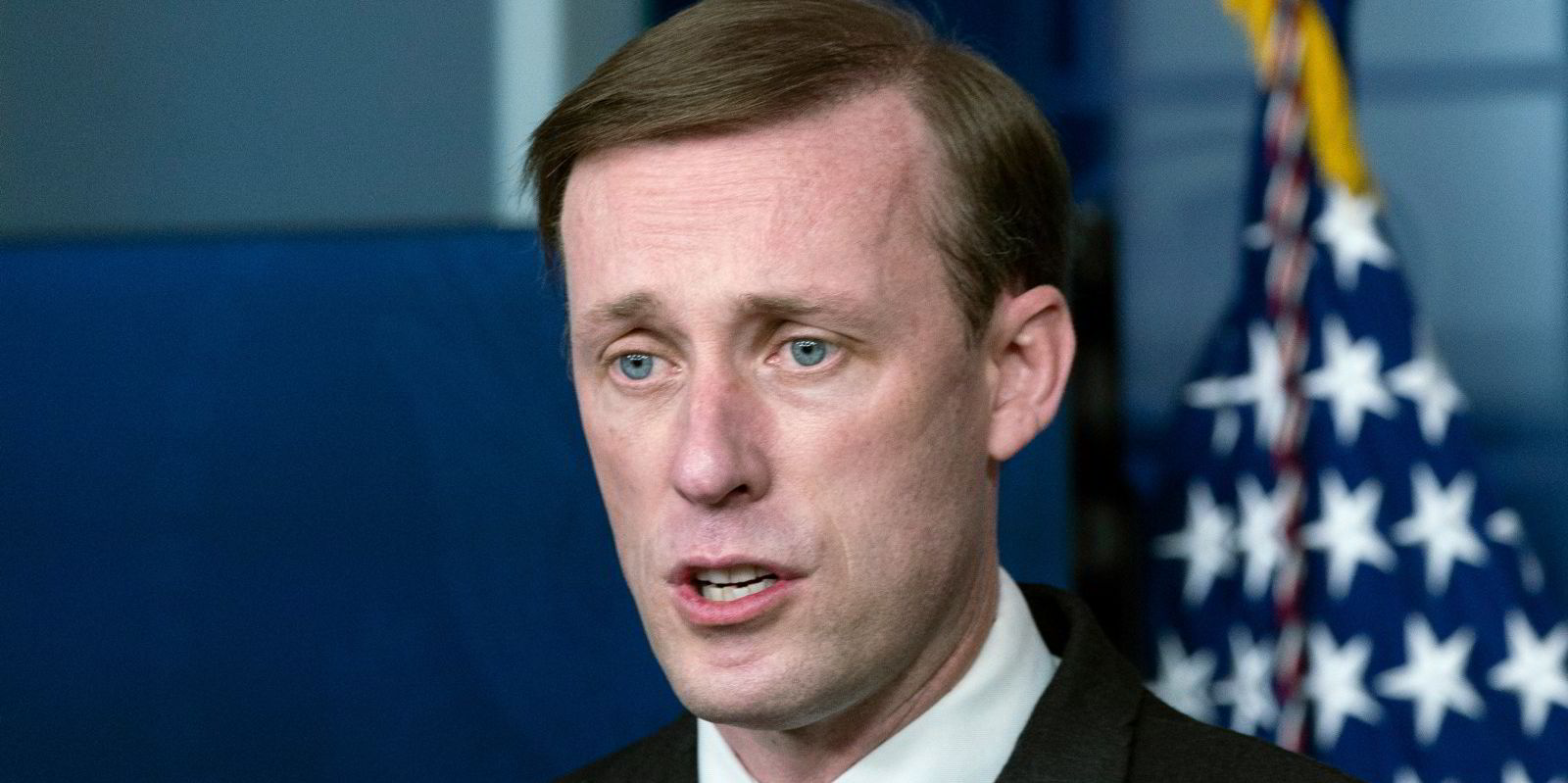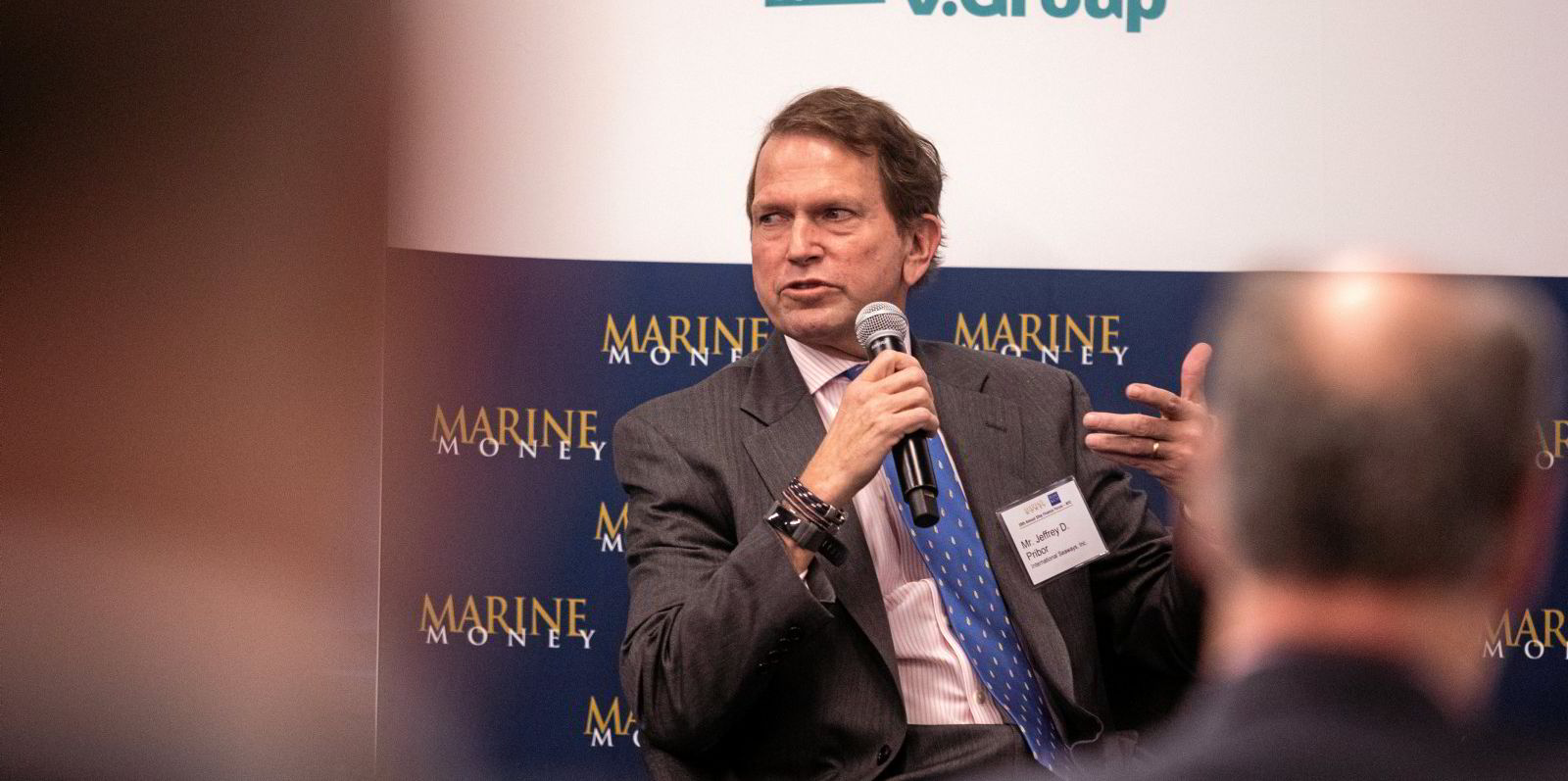Belgian tanker owner Euronav is finding it difficult to pinpoint when rates will rise following a "challenging" second quarter.
The New York and Brussels-listed company said it is maintaining its confidence in the sector over the medium term, however.
Euronav turned in an $89.7m net loss in the three months to 30 June, compared with a profit of $259.6m in 2020.
Revenue was chopped to $104m from $435m the year before.
The shipowner, which is paying a dividend of $0.03 per share, said Opec+ output rises have not yet fully translated into higher tanker demand.
The company's average VLCC spot rate during the quarter was $11,250 per day, down from $81,500 in the same period of 2020.
Suezmaxes managed $10,500, against $60,750 last year.
Rates falling in third quarter
For the third quarter, Euronav has booked 43% of spot VLCC days at $8,000 per day, with suezmaxes on $8,250 for 48% of fleet days.
Ebitda of $4m was below analysts' expectations.
Fearnley Securities said the miss was largely down to lower than expected spot rates, as well as off-hire.
Advance bookings suggest another challenging quarter ahead, the investment bank said.
The result for the third quarter will likely be worse than the previous three months, Fearnleys added, but liquidity is "ample".

Chief executive Hugo De Stoop said: "Key market signals such as global crude inventory levels, rising asset prices and improved recycling rates suggest solid foundations are being established for cyclical recovery."
But he warned: "For freight rates to gain traction, crude demand and supply dynamics will need to go back to their normal pattern and this timing remains uncertain."
"Our confidence in the development of the medium-term tanker market remains positive," the De Stoop said.
The company is continuing to use this weaker period to dock ships.
A total of 27 dry dockings will take place this year, of which 17 have now been completed.
Liquidity stood at $905m at year-end.
Recovery deferred
"A recovery in the tanker cycle has continued to be deferred during the second quarter of 2021," the company said.
Euronav blamed persistent localised outbreaks of Covid-19 for curbing economic activity, slowing the return to full pre-coronavirus oil demand, particularly for jet fuel.
Tonnage supply has remained "stubbornly elevated", in particular in key export markets such as the Middle East, the company added.
Recycling has accelerated during the second quarter, however, with nine VLCCs scrapped so far this year, more than double of the total amount in 2020.
"The number of phase-out candidates continues to accumulate, with 9% of the VLCC fleet for instance already over 20 years of age," Euronav said.
"During the recent quarter there has been a sustained rise in Middle East cargoes, with June’s tanker cargo count in the region being the highest since December," the shipowner added.
This has been reducing the surplus tonnage in the region.
Euronav believes the Opec+ group's decision to begin increasing production by 400,000 barrels per day from August could see an additional 2m barrels in circulation by the end of 2021, meaning 60 more VLCCs needed to cope with the cargoes.







